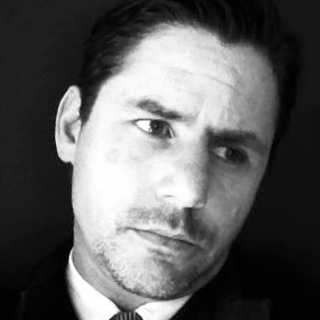
Philosophy defined is the study of human existence and knowing; philosophy applied is nothing more than a bad accident waiting to happen.
Reading philosophy as a hobby can be quite fascinating. Not only does the study of the mind offer an endless labyrinth of complex thought, but working through mental puzzles of logic can be quite exhilarating. It is also satisfying to sound smart to your wife by throwing out fancy philosopher’s names like Socrates, Descartes, Kierkegaard, Nietzsche, and Francis Bacon. And of course, everyone loves bacon.
But treating philosophy as an exact science is like trying to fill up a bathtub with water and a wicker basket. Human perception is limited, so naturally, understanding will be filled with gaping holes, and as a result, trying to lay down a comprehensive system of thought that explains all of reality is both impossible and arrogant. But philosophers don’t care how exact they are because speculation, austere theory, and conjecture are their bread and butter. Heck, some philosophers aren’t even sure if they themselves actually exist.
And sadly, some of these grand philosophical constructs are esteemed and adopted by the progressive educated elite as the highest form of thought. They really think they have figured out life’s secrets. So they insist on their theories being adopted by the simple-minded proletariat, convincing them that adopting their convoluted conclusions is the only way to living a happy and successful life.
Blinded by their intellectual hubris, most of our cultural thought leaders fail to realize that every philosophical system can only provide incomplete explanations and half-baked solutions for the brokenness and complexity of life. It is like trying to spread a small amount of pizza dough over a huge pizza pan. It may cover some parts of the pan, but it will be stretched thin and unable to fully cover the other parts.
In contrast, when God speaks about reality his truth covers all of the pan. The God who actually lives is omniscient. That means he is all-knowing so his solutions can plumb the complete depth of the human experience. If we want real answers to our daily human problems we need to understand theology. As Jeremiah 6:16 says,
“This is what the LORD says: “Stand at the crossroads and look; ask for the ancient paths, ask where the good way is, and walk in it, and you will find rest for your souls. But you said, ‘We will not walk in it.’”
If you look closely at the end of this verse, human arrogance has a terrible habit of suppressing the truth. God is ignored and tossed aside like an out-of-touch senile old man, and when that happens the philosopher is more than happy to fill the vacuum that is left. But the hole that God leaves behind can never be filled by mere human solutions. Philosophy is woefully inadequate to meet reality’s massive complexities. But in our pride, we act like fixing flawed humanity is no big deal. Again Jeremiah 6:14 speaks,
“They dress the wound of my people as though it were not serious. ‘Peace, peace,’ they say, when there is no peace.”
And as a result chaos and confusion reign.
PEARS AND ASPARAGUS
To illustrate how humanistic philosophy has set modern man on a moral tailspin, the writer Carl R. Trueman offers a contrast in worldviews in the book “The Rise and Triumph of the Modern Self.” He shows how vastly different the Christian and secular atheist understands and explains what it means to be human.
To represent the Christian worldview, Trueman relates a story written by the early church father, Augustine, where in his autobiographical book “Confessions” he describes how a theft of pears serves as a “literary representation of his fall into sin”. Trueman writes, “The plot in Augustine’s work is simple: Augustine and a group of friends raid a neighbor’s garden late one night and steal pears. These pears are neither attractive to look at nor tasty to eat. In fact, Augustine had more and better pears in his own garden.” Egged on by the laughter of his friends, Augustine steals the pears. Trueman continues, “For Augustine, the theft is the result of the sheer sinful delight to be had in breaking the law.”
Then he offers a contrasting story which is told by the popular atheistic philosopher, Jean-Jacques Rousseau. Trueman describes Rousseau as both a genius and major influencer of modern Western thought, especially when it comes to understanding what it means to be human. Like Augustine, Rousseau also wrote an autobiographical account of his life called “Confessions.”
Rousseau also details a time when he was persuaded by his older friend to steal some asparagus from his friend’s mother’s garden. “Rousseau’s account of his act emphasizes that the motivation for the crime was not greed (or sinful delight) but only to oblige his friend who was making him do it. Thus, the act was driven not by some inward impulse that was intrinsically sinful but by a good desire that led him to perform a sinful act…The desire was a basically good one; it was only the manner in which he fulfilled it that was morally problematic.”
Carl Trueman sums up the contrast by saying, “Augustine blames himself for his sin because he is basically wicked from birth; Rousseau blames society for his sin because he is basically good at birth and then perverted by external forces.” In other words, Augustine sees his stealing as a personal failing, Rousseau sees his stealing as the evil pressure society forces upon us. So the Christian worldview as expressed by Augustine begins with the individual as a broken sinner. He personally is responsible for the sinful actions that are taken. Whereas the philosopher Rousseau blames others for his personal moral failings. His actions should not be considered sinful because he was compelled to do them by a source outside of himself. Who would have thought that stealing fruits and vegetables could comprehensively explain the ways of the world? Talk about hubris!
PHILOSOPHICAL IMPLICATIONS
Even though these two stories sound very similar, the conclusions are worlds apart. And they are quite telling, especially when it comes to where we are today as a society as a whole. For the Christian, because sin resides in me, I need to be fixed. I am the problem. Therefore, my internal desires and wants must always be evaluated and questioned. As Psalm 139:1 says, “Search me O God, and see if there is any wicked way in me.” The human is desperately flawed from the get-go, and because of this, we need help outside of ourselves to make things right.
Whereas the humanist philosopher Rousseau turns all of this classic theology on its head. Don’t blame the person, blame the outside forces for the brokenness of the world. What is inside of us is the only thing that is right and pure, it is society that screws us up. So if I am pure and good on the inside then what I want and desire must be pure and good too. The implications of this philosophical worldview are now being applied in almost every area of life, and the results are tragic. This new batch of philosophical pizza dough is trying to be stretched over every area of life and the holes are apparent.
Gone now are the Christian virtues of temperance, patience, and prudence and they have been replaced by the modern ethics of indulgence, immediate gratification, and self-expression. Modern man now is convinced that what is inside me is good, therefore what I want must be good. So give me what I want now. And those outside groups and institutions that won’t give me what I want are the problem. This includes God, the church, and now even biology is the bad guy.
If I am a man but I feel like a woman on the inside, I must be a woman. If I am married but I want to marry another, let me marry another. All that matters is desire. The bad guy is out there in the rules and norms and expectations of civilized society, even improper pronouns are villains. If I look like a she but I want to be called a he the word “she” is ruining my reality. The person outside using it must be punished. The Christian worldview had clear rules, but not anymore. The new ethic demands my inner desires to be accepted and celebrated. `
A recent article by Peachy Keenan titled, Bi, Bi, Miss American Pie, illustrates this point perfectly. She writes, “Is bisexuality the state of being in either a straight or gay relationship but still feeling attraction for other people at the same time, or are you reserving an option in the future to feel attraction to other people? Is bisexuality transitory and fleeting, like they tell me gender is? As Carrie Bradshaw might ask, can one be bisexually fluid?”
She continues, “I’m no expert, and I know we shouldn’t trust people unless they’re experts, but the fact that so many more Generation Zs chose “bisexual” over gay or straight in the Gallup poll indicates that some likely chose it on the spot, under duress. Declaring yourself bisexual gives you newly elevated status as a protected class; you win extra social points.”
You can choose what you want to be and believe on the spot because all that matters is what you want on the inside. The real question is, what will be the outcome of this kind of unhindered experimentation?
The author’s answer to this sort of question is the most troubling of all, “Of course, the answers to these questions don’t matter. No one cares, least of all me, whom you “choose to love” as Michelle Obama likes to say. But the phenomenon of young women flooding into LGBTQIA+ world, clogging the highways and bi-ways of society, bodes ill for us all.”
Why does it bode ill? Because mere humanistic philosophy is anemic. As Colossians 2:8 says,
“See to it that no one takes you captive through hollow and deceptive philosophy, which depends on human tradition and the basic principles of this world rather than on Christ.”
Philosophy as a system of comprehensive understanding is hollow. It fails.
That is why I would rather eat a pear than asparagus.

Christopher J. Weeks is an author and has been a bartender, rugby player, salesman in the Chicago loop, teacher in Russia, and now for the last 25 years, he has been pastoring with his wife and four children at a rural church amidst the apple orchards of West Michigan farmland.





